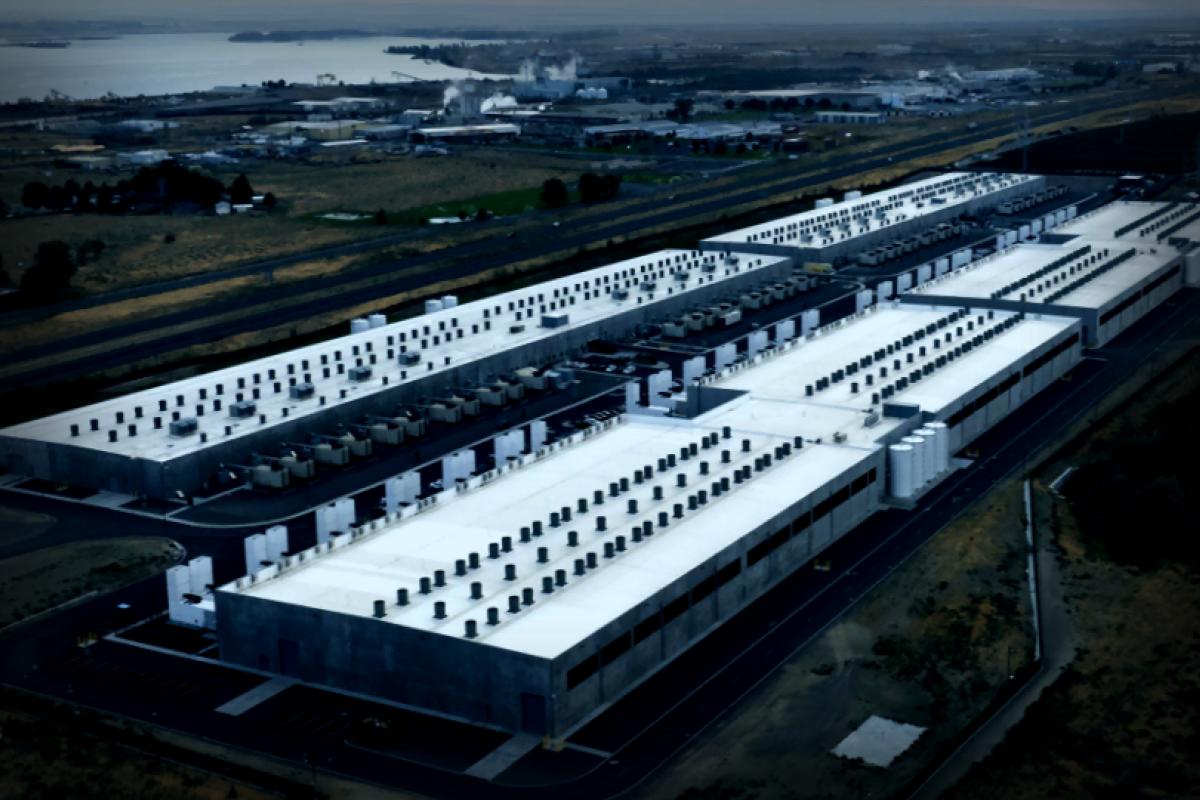HARRISBURG, Pa. (AP) — As electric bills become increasingly burdensome for households and businesses, state authorities are feeling the heat to protect residents from the financial fallout of accommodating energy-intensive data centers operated by Big Tech.
Identifying a clear answer to the problem is tricky, and many are questioning whether any state has the resolve to hold giant tech companies like Microsoft, Google, and Amazon accountable. Still, more than a dozen states are proactively working on strategies as these data hubs lead to a rapid construction of power plants and infrastructure needed for energy distribution.
Efforts include pressuring major power grid operators to handle pricing issues more effectively, studying how data centers affect energy costs, and encouraging owners to contribute more toward local energy infrastructure expenses.
Charlotte Shuff from the Oregon Citizens’ Utility Board shared, “Lawmakers have been hearing a lot from the public regarding energy costs. There’s been significant engagement at the state’s public utility commission recently — I’ve never seen this level of participation before. The outcry is overwhelming.”
Data Centers Impacting Costs
Some of these data centers can demand as much electricity as entire cities, dwarfed only by their considerable energy needs when compared to massive factories. This scenario has led policymakers to reconsider how transmission costs have traditionally been distributed across various consumer groups based on electricity use.
Ari Peskoe from Harvard’s Electricity Law Initiative points out, “Billions of dollars are being spent to expand the electricity network just for a select few clients, namely the wealthiest firms worldwide. This calls into question the very assumptions underpinning our electrical system.”
Fixing this problem is viewed as a difficult dilemma that pits different consumer groups against each other.
Meanwhile, some officials downplay the contribution of data centers to rising electricity bills. Tricia Pridemore of Georgia’s Public Service Commission emphasizes that a strained electricity supply and rising costs associated with maintaining utility infrastructure have a more significant impact.
She notes that many data centers that are set to support the flourishing artificial intelligence sector are still navigating regulatory processes, adding that the Data Center Coalition is committed to fair contribution towards energy costs.
However, substantial evidence indicates that the electricity costs for some American consumers may be escalating to subsidize Big Tech’s massive energy appetite, especially in the context of the U.S.-China competition for dominance in artificial intelligence.
Wood Mackenzie recently published findings highlighting that the special electricity rates proposed for data centers across 16 states fall short of covering the costs of establishing new natural gas facilities.
In more straightforward terms, unless utilities negotiate better rates for these specialized customers, regular ratepayers—including residents and businesses—might be the ones absorbing the costs of powering these data hubs.
Independent market watchers from Monitoring Analytics reported that about 70% — roughly $9.3 billion — of last year’s hike in electric costs stemmed from increased demand from data centers.
State Actions in Progress
In the previous year, five state governors, led by Pennsylvania’s Josh Shapiro, pushed back against drastic price hikes established by the mid-Atlantic grid operator, PJM Interconnection, after those prices soared nearly sevenfold, cautioning that customers might be overpaying by billions.
Although PJM hasn’t laid out concrete proposals on how to ensure data centers contribute adequately, Monitoring Analytics suggests compelling them to secure their own power to prevent substantial cost shifts from everyday customers to affluent tech corporations.
At least a dozen different states are exploring how to require data centers to pick up a larger share of local energy distribution costs.
Oregon, a hotspot for data-related facilities, recently passed legislation that mandates state utility regulators to explore adjusting electric rates for these facilities, likely resulting in higher charges.
The Oregon Citizens’ Utility Board claims that there’s conclusive evidence showing that expenses associated with data centers are often redistributed to all consumers during a time when many notices reflect electricity bills having jumped by 50% in four years while disconnections are rising.
In New Jersey, the governor has approved a study aimed at assessing if ratepayers face unreasonable price surges for data center connection, and recommendations for a specific rate structure for these facilities are also under consideration.
In states like Texas and Utah, lawmakers are focused on averting a potential supply crisis that might leave everyday consumers stranded.
Concerns About Consumer Protection
In Indiana, state regulators have sanctioned a deal involving prominent companies like Amazon, Google, and Microsoft concerning the payment structure for services provided to data centers.
Kerwin Olsen from the Citizens Action Council of Indiana, who endorsed this settlement, described it as a solid agreement with more consumer protections than typical state regulations provide.
However, he highlighted that state laws do not mandate significant power users like data centers to disclose their energy consumption, which complicates efforts to determine if they are contributing equitably to transmission costs.
A report earlier this year by a Harvard program raised suspicions regarding whether utilities and government entities genuinely aim to shield everyday customers from covering the electricity costs belonging to data centers. The piece noted mutual advantages for utilities and states in attracting large clients, often resulting in offering discounted rates that may lead to shifting indirect costs to lesser users.
In Pennsylvania, which is increasingly becoming a focal point for data centers, the state utility commission is developing a framework for utilities regarding pricing, aiming to place the financial responsibility on data developers.
“We’re talking about potential upgrades costing hundreds of millions. That’s an expense we can’t pass onto ratepayers,” remarked commission chairman Stephen DeFrank.
___
Stay updated with Marc Levy by following him on X at https://x.com/timelywriter.




















